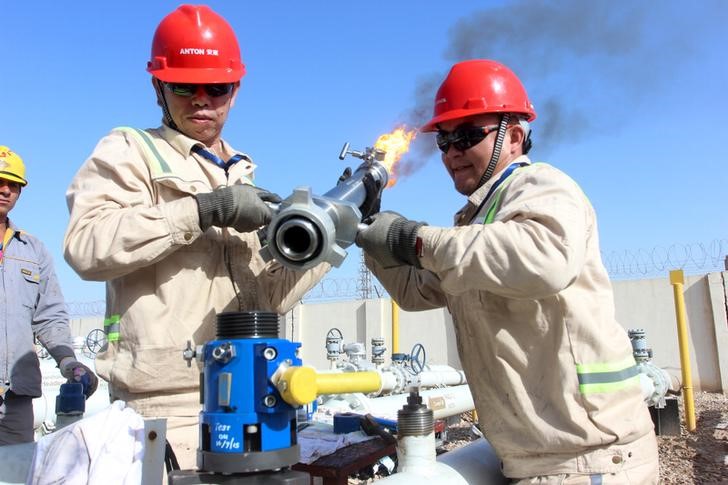Investing.com - U.S. crude oil inventories fell less than forecast last week, with an implied lack of refinery activity making some analysts question whether West Texas Intermediate oil will be able to hold above $55.
The Energy Information Administration said in its regular weekly report that crude oil inventories decreased by just 0.28 million barrels in the week to May 24.
That was compared to forecasts for a stockpile draw of 0.86 million barrels after a build of 4.74 million barrels in the previous week.
The EIA report also showed that gasoline inventories increased by 2.20 million barrels, compared to expectations for a drop of 0.53 million barrels, while, on the bullish side, distillate stockpiles fell by 1.62 million barrels, compared to forecasts for a build of 0.56 million.
The data was delayed by a day this week due to Monday’s Memorial Day holiday.
U.S. crude prices extended losses after the release, falling 1.8% at $57.73 a barrel by 11:31 AM ET (15:31 GMT), compared to $58.71 prior to the publication.
London-traded Brent crude futures lost 2.6% to $66.08 a barrel, compared to $67.27 ahead of the release.
Investing.com senior commodity analyst Barani Krishnan said the price move was unsurprising given the “extremely bearish data set” which raises the question of where the refiners are.
“While refinery runs did go up from the previous week to the season norm of above 90%, the smaller-than-expected draw is still indicative that refiners are hampered by the weak crack margins we have now for gas,” he said.
“If (refiners) don't ramp up their runs by next week, I think WTI will have serious problems holding above $55, whether OPEC continues cutting or not,” Krishnan concluded.
Oil has been under pressure this week as trade tensions between the U.S. and China escalate. The ongoing conflict between the world’s two largest economies runs the risk of derailing global growth, implying a negative impact on demand for crude.
Contrasting a slowdown in demand, supply is tightening thanks to the OPEC-led production cuts, U.S. sanctions on Iran and Venezuela and disruptions from Nigeria to Russia.
Ellen Wald, president of energy and geopolitics firm Transversal Consulting and an Investing.com contributor, noted that 2019 has been good to oil traders as prices have increased steadily since the beginning of the year.
“However, the pendulum of good news/bad news may finally be swinging more heavily to the negative side, as signs of global economic slowdown get stronger,” Wald warned.
But faced with tightening supply, Wald postulates that the “conflicting signals mean the surprises may very well continue”.
